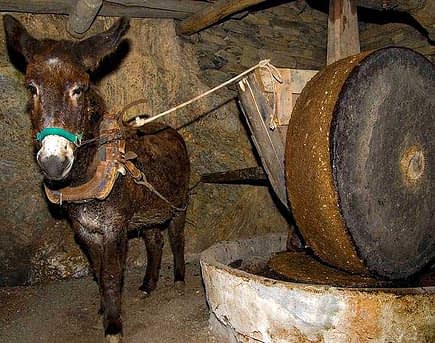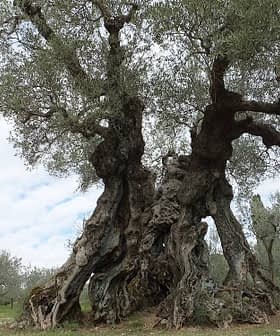The north western province of Galicia in Spain is not well known for its olive oil production, unlike the regions further south and east, however, the valley of Quiroga close to Lugo continues to hold a annual festival to celebrate the small but historical production of oil in this region.
Olive trees are thought to have been introduced to Galicia during the Roman invasion, however, the olive oil industry was threatened and close to destroyed in the 15th century. A mandate by Catholic monarchs and raised taxes for olive harvesters caused the majority of olive trees throughout Galicia to be cut down.
However, in the valley of Quiroga, and a few other isolated regions, trees survived and continue to serve for oil production, although on a greatly reduced scale. The valley hosts eighteen restored olive mills, however only one of these is still in use, restored as the owner was reluctant to see an important monument to the history of the region be lost.
This desire to continue the historical tradition of the valley and for eventual commercialization of the local olive oil gave rise to the valley’s olive oil festival. The festival attracts consumers from all over Spain, and features the year’s harvest of oil, along with other local products such as liqueurs and honey.
Visitors can taste oils from the five local harvesters, who produce about 1600L of oil a year, primarily for personal use and sell only what is surplus to their requirements. Olive oil sells for about 20 euros a liter at the festival, and differs vastly from those which can be found in the supermarket in flavor, with the characteristic taste associated with Galician olive oils perfect for traditional dishes such as Pulpo á Feria (boiled octopus with paprika and olive oil).
Olive oil production in this region has increased in the past years and is set to be even greater in years to come with further cultivation of trees in the valley and surrounding areas, where similar climatic conditions make for good growth.
Santiago based company, Invatia Research, has pioneered large scale extra virgin olive oil production in Galicia with its Olei olive oil, which is targeted at the ‘gourmet’ market and exported around the world. It is hoped that Galician olive oil will in time be classified under a denomination of origin, further promoting the product.
The festival will be held on the 26th of February in 2012, and allows visitors a chance to view a demonstration of traditional olive oil production in the original olive mill, as well as to see traditional dances and activities.




